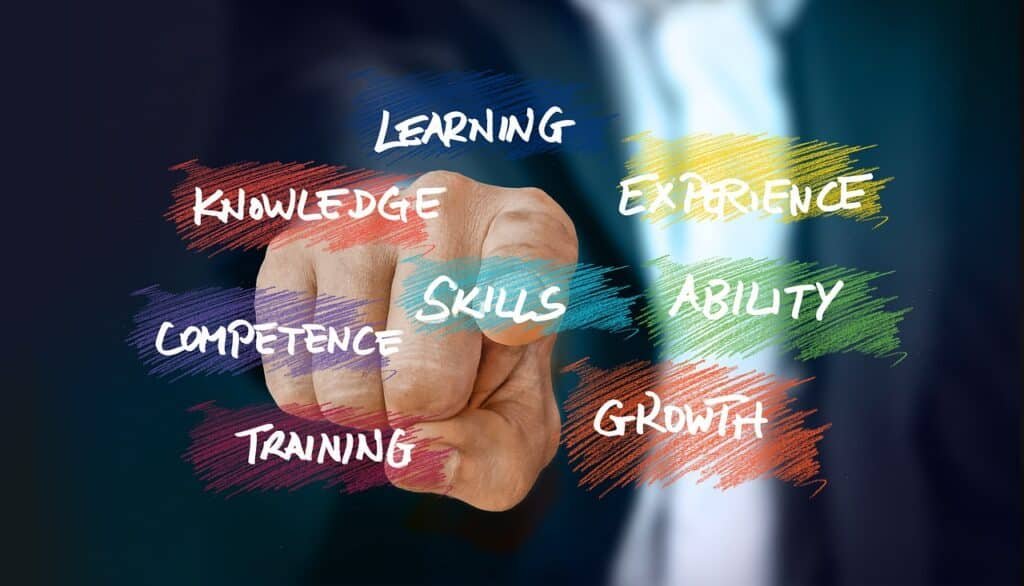
Core competencies are the skills that allow a business to deliver a benefit to customers, and capabilities that are critical for a business to achieve a competitive advantage. These competencies go beyond market positioning—they represent the strengths that differentiate a business from its competitors and drive innovation. Senior management must focus on these core competencies rather than attempting to oversee every activity, ensuring that the business maximises its strengths to outcompete others.
In analysing core competencies, businesses should ask: why are customers willing to pay more or less for a particular product or service? A core competency must be something that a business excels at compared to its competitors. Identifying these key skills helps businesses innovate and dominate their markets. The goal is not to list all skills relevant to a business, but rather to highlight those that provide a competitive edge and act as catalysts for growth.
Skills and Competencies in the Workplace
In today’s rapidly evolving job market, possessing the right mix of skills and competencies is critical for individual success. Skills refer to specific, measurable abilities acquired through training or experience, such as proficiency in software or programming. Competencies, on the other hand, are a broader set of behaviours, knowledge, and attributes that enable individuals to perform effectively in specific roles. Both are essential for workplace achievement and career progression.
Employers increasingly seek candidates with a diverse set of technical and soft skills. Strong communication, problem-solving, and teamwork abilities are highly valued, as they enable employees to build relationships, address workplace challenges, and collaborate effectively. In addition, leadership and adaptability are key soft skills employers look for, especially in dynamic environments where innovation and flexibility are crucial for success.
How to Develop and Improve Skills and Competencies
Developing and improving skills and competencies is essential for career growth and job performance. Formal education, such as degrees and certifications, is one way to build technical expertise. Professional development programs, workshops, and on-the-job training can also help individuals expand their skill sets. Taking on challenging projects, seeking feedback, and learning from mentors are practical strategies for continuous improvement.
Individuals should actively engage in continuous learning to stay competitive. This includes staying updated on industry trends, attending conferences, and participating in networking opportunities. Hands-on experience combined with learning from others’ expertise helps sharpen skills and enhances one’s ability to adapt to changes in the job market.
The Role of Skills and Competencies in Career Advancement
Skills and competencies play a critical role in career advancement. As individuals move into leadership roles, they are often required to take on more complex responsibilities that demand a diverse skill set. Strong leadership abilities, such as motivating teams and making strategic decisions, are essential for career growth. Problem-solving skills, critical thinking, and the ability to manage complex challenges also contribute to individuals being considered for higher positions within an organisation.
Possessing a broad range of skills and competencies enables employees to take on new initiatives, stand out within their organisations, and pursue opportunities outside of their current roles. Continuous learning and skill development not only benefit the individual but also enhance the organisation’s overall success.
The Impact of Skills and Competencies on Job Performance
The combination of technical expertise, soft skills, and leadership abilities directly influences job performance. Strong problem-solving and communication skills enable individuals to navigate challenges, collaborate effectively, and contribute to business success. These competencies enhance efficiency and productivity, leading to higher levels of job satisfaction and organisational achievement.
Leaders who possess both technical knowledge and soft skills, such as empathy and adaptability, can drive team performance and foster an environment of innovation and growth. When individuals leverage their strengths and continuously develop their skills, they are more likely to excel in their roles, contributing to the overall success of their teams and organisations.
Showcasing Skills and Competencies on a Resume
To stand out to potential employers, candidates must effectively showcase their skills and competencies on their resumes. A dedicated “Skills” section that lists key technical and soft skills is an essential starting point. It’s important to align these skills with the specific job requirements. Incorporating relevant examples of how these skills have been applied in past roles, such as through specific projects or achievements, demonstrates tangible value to employers.
Additionally, listing certifications, training, and other professional development efforts further emphasise a commitment to continuous learning. Including industry-specific keywords in the job description increases the chances of passing through applicant tracking systems (ATS), improving the likelihood of securing an interview.
The Future of Skills and Competencies in the Evolving Job Market
As industries evolve and technology advances, the demand for new skills and competencies continues to grow. Digital literacy, data analysis, artificial intelligence, and cybersecurity are just a few of the emerging technical skills that will shape the future workforce. Soft skills, such as adaptability, creativity, and emotional intelligence, will also become increasingly critical as work environments shift towards remote and globalised operations.
Continuous learning, upskilling, and staying informed about industry trends will remain essential for individuals seeking to remain competitive. Those who develop a diverse set of skills and competencies, especially in line with market trends, will be better positioned to take advantage of future career opportunities and succeed in an increasingly dynamic job market.
Key Takeaways
As the job market evolves, adaptability, digital literacy, and a commitment to lifelong learning will be essential for future success.
Core competencies drive business success by setting companies apart from competitors and fostering innovation.
Skills and competencies, both technical and soft, are crucial for individual success in the workplace and for career advancement.
Continuous learning and professional development are essential for improving skills and staying competitive in a fast-changing job market.
Showcasing skills and competencies effectively on a resume is key to standing out to potential employers.
